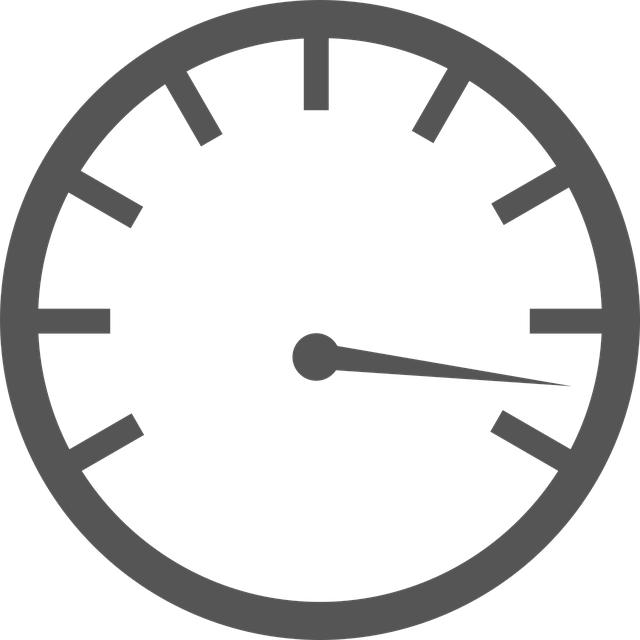Hey there, fellow riders! Have you ever wondered what you should do after a motorcycle crash? Look no further, as we unveil the crash course on exactly what steps to take to ensure your safety and well-being. Stay tuned for expert advice and essential information to guide you through this challenging experience. Let’s ride safe together!
Understanding Your Rights and Responsibilities as a Motorcyclist
After a motorcycle crash, it’s crucial that you understand your rights and responsibilities as a motorcyclist. First and foremost, ensure your safety and the safety of others involved in the accident. Check for injuries and call for medical assistance if needed. Next, follow these steps to protect yourself legally and financially:
- Gather Information: Collect contact information from all parties involved, including witnesses. Take photos of the scene, damages, and any injuries sustained.
- Notify Authorities: Call the police to report the accident. Make sure to obtain a copy of the police report for your records.
- Contact Your Insurance Company: Notify your insurance provider about the crash as soon as possible. Provide them with all relevant details and documentation.
In addition to these immediate actions, it’s essential to be aware of your rights and responsibilities under the law. By staying informed and prepared, you can navigate the aftermath of a motorcycle crash with confidence and clarity.

Securing the Scene: Safety Measures and Legal Obligations
When a motorcycle crash occurs, the first priority is to secure the scene to ensure the safety of everyone involved and to fulfill legal obligations. Follow these safety measures and legal obligations to handle the situation effectively:
- Check for Injuries: The first step is to check for injuries and provide first aid if necessary. Call emergency services immediately if anyone is seriously hurt.
- Move to a Safe Location: If possible, move the motorcycles and vehicles involved to a safe location to prevent further accidents or traffic congestion.
- Document the Scene: Take photographs of the scene, including the position of the vehicles, any skid marks, and any road hazards that may have contributed to the crash.
| Legal Obligations | Action |
|---|---|
| Exchange Information | Exchange contact and insurance information with the other parties involved in the crash. |
| Report the Crash | Report the crash to the police and your insurance company as soon as possible. |
| Seek Legal Advice | Consult with a personal injury attorney to understand your rights and legal options. |
Seeking Immediate Medical Attention and Documenting Injuries
After a motorcycle crash, it is crucial to seek immediate medical attention for any injuries sustained. Whether you are experiencing minor cuts and bruises or more severe injuries, it is important to be evaluated by a healthcare professional as soon as possible. Remember, your health and well-being should always be the top priority.
In addition to seeking medical attention, it is highly recommended to document any injuries you have suffered as a result of the crash. This documentation can be crucial when filing an insurance claim or seeking legal action. Take detailed notes of your injuries, including any pain or discomfort you are experiencing, and consider taking photographs to visually document the extent of your injuries. This information can be invaluable in the days and weeks following the crash.
Remember, taking care of yourself should always come first. Seek medical attention, document your injuries, and advocate for your own well-being in the aftermath of a motorcycle crash. Your health is invaluable, so make sure to prioritize it above all else.
Alerting Authorities and Filing a Police Report
After a motorcycle crash, it is crucial to alert the authorities and file a police report as soon as possible. Not only does this ensure that the incident is properly documented, but it also helps in determining fault and holding the responsible party accountable. To effectively handle this situation, follow these essential steps:
– **Call 911:** Contact emergency services immediately to report the crash and request assistance. Provide them with necessary details such as the location, extent of injuries, and any other relevant information.
– **Cooperate with Law Enforcement:** When the police arrive at the scene, provide them with an accurate account of the events leading up to the crash. Be honest and thorough in your statement, and refrain from admitting fault.
– **Obtain a Copy of the Police Report:** Request a copy of the official police report for your records. This document is essential for insurance claims and legal proceedings, as it contains crucial details about the crash and statements from involved parties.
Gathering Evidence: Witnesses, Photos, and Accident Reconstruction
In the chaos following a motorcycle crash, it’s crucial to gather as much evidence as possible to support your case. One of the key steps to take is to identify and speak with witnesses who may have seen the accident unfold. Get their contact information and statements to corroborate your version of events.
In addition to witness testimony, **photos** of the accident scene and your injuries can be invaluable in proving negligence or fault. Use your phone to capture images of the vehicles involved, road conditions, traffic signals, and any relevant signage. Don’t forget to document any visible injuries you sustained in the crash.
Finally, consider hiring an **accident reconstruction** expert to analyze the scene and provide a professional assessment of what happened. This can be especially helpful if there are disputes over who was at fault or how the accident occurred. Remember, the more evidence you have, the stronger your case will be when seeking compensation for your injuries and damages.
Contacting Your Insurance Company and Understanding Coverage
When reaching out to your insurance company after a motorcycle crash, it’s important to gather all the necessary information before making the call. This includes your policy number, the date and time of the accident, as well as any relevant details about the crash itself. Being prepared with this information will help expedite the claims process and ensure that you receive the coverage you are entitled to.
Understanding what your insurance policy covers is crucial in the aftermath of a motorcycle crash. Take the time to review your policy documents or contact your insurance agent to clarify any uncertainties. Knowing what is covered, such as liability, medical payments, or comprehensive coverage, will help you navigate the claims process and make informed decisions moving forward.
Keep in mind that every insurance policy is different, so it’s important to ask specific questions about your coverage and any potential limitations. Don’t hesitate to seek clarification on any unclear terms or conditions, as having a clear understanding of your insurance coverage will help you make the best decisions for your situation.
Consulting with a Personal Injury Attorney for Legal Guidance
When it comes to navigating the legal aftermath of a motorcycle crash, seeking guidance from a personal injury attorney can be a crucial step towards securing the compensation you deserve. An experienced attorney can provide valuable advice and representation throughout the claims process, ensuring your rights are protected and your best interests are served.
By consulting with a personal injury attorney, you can benefit from:
- Expertise in personal injury law
- Assistance in gathering evidence
- Negotiation with insurance companies
| Benefits of Consulting with a Personal Injury Attorney |
|---|
| Legal expertise |
| Evidence gathering support |
| Insurance negotiation assistance |
Navigating the Claims Process and Negotiating Settlements
After a motorcycle crash, can be complex and overwhelming. To help you through this challenging time, here are some essential tips to keep in mind:
- Document everything: Make sure to take photos of the crash scene, your injuries, and any damage to your motorcycle. Keep track of all medical records, police reports, and any other relevant documents.
- Seek medical attention: Even if you don’t feel seriously injured, it’s essential to see a doctor immediately after a crash. Some injuries may not be apparent right away, so getting checked out is crucial for your health and any potential claims.
- Don’t settle too quickly: Insurance companies may pressure you to accept a settlement soon after the crash. It’s essential to wait until you fully understand the extent of your injuries and damages before agreeing to any settlement offer.
| Claim Process | Negotiation Tips |
|---|---|
| File a claim with your insurance company. | Don’t accept the first offer – negotiate for a fair settlement. |
| Provide all necessary documentation. | Be prepared to counter any lowball offers with evidence of your damages. |
| Consult with a personal injury attorney if needed. | They can help you navigate the process and negotiate a higher settlement. |

Recovering physically, emotionally, and financially after a motorcycle crash
After a motorcycle crash, it’s important to prioritize your physical, emotional, and financial recovery. Here are some essential steps to take:
- Seek Medical Attention: Your health should always come first. Make sure to get checked out by a medical professional, even if you don’t think you’re seriously injured.
- Take Care of Your Emotional Well-being: A motorcycle crash can be a traumatic experience. Don’t hesitate to seek therapy or counseling to help you process your emotions and cope with any mental health challenges.
- Contact Your Insurance Company: Notify your insurance provider about the crash as soon as possible. They can guide you through the claims process and help you financially recover from any damages or injuries.
Overall, handling a motorcycle crash can be a daunting experience, but with the right knowledge and preparation, you can navigate the aftermath with confidence. By following these steps outlined in our crash course, you can ensure a smoother process and protect your rights. Remember, safety always comes first, so prioritize your well-being and seek help when needed. Stay informed and stay safe out on the roads!



